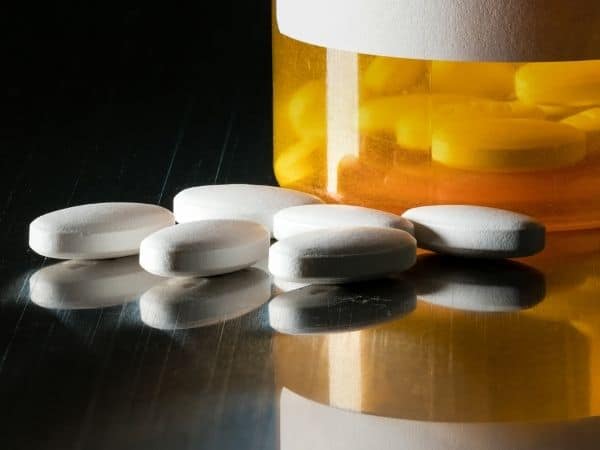If you are caught in the grasp of opiate addiction, it can feel almost impossible to imagine breaking free. However, an opiate detox treatment can help you stop using opiates in a much more comfortable way than if you try to do it on your own.
Read on to learn more about opiate detox programs, and how to choose the right program for you.
What Type of Medication Misuse Would Make Me Eligible For Opiate Detox?
Opiate medications work on the opioid receptors of the body, creating strong sensations of pain relief and strong sensations of euphoria.
Examples of opiate medications include:
— Hydrocodone (Norco, Vicodin).
— Oxycodone (Oxycontin, Percocet).
— Tramadol.
— Codeine.
— Morphine.
— Fentanyl.
— Buprenorphine.
— Oxymorphone.
— Hydromorphone (Diluadid).
— Demerol.
— Methadone.
Heroin is also a medication that affects the opioid receptors. But it is not a prescription medication and is typically managed in a separate treatment program.
When Should I Pursue an Opiate Detox Treatment Program?
If you have been researching an opiate detox program, it may be a sign that you should pursue one. This is because one of the cardinal signs of addiction is having the desire to cut back or curtail your substance use.
Other signs of addiction that may indicate it is time to pursue an opiate detox treatment include continuing to take a drug after it is no longer needed or prescribed for a health condition, having a difficult time putting limits on yourself and your usage patterns, losing interest in activities other than using the medication, hiding your usage behaviors from others, going to other doctors to get more prescriptions, and having difficulties in your personal relationships.
What Kinds of Opiate Detox Treatment Programs are Available?
When it comes to opiate detox, an addiction counselor can work within the constraints of your lifestyle to find the most effective treatment format. For some people, completely disconnecting from their former life, by living in a residential treatment facility, is the most effective way to overcome their addiction. For other people, being able to maintain their daily activities as much as possible, while still getting opiate detox support on an outpatient basis, is the most successful path forward.
What Happens During an Opiate Detox Program?
During an opiate detox treatment program, highly-trained medical providers and counselors guide you through the withdrawal process. Although withdrawal can be intimidating, being in close contact with a medical professional who can help you manage any withdrawal symptoms that occur can afford you a much more pleasant experience than if you try to go through the detoxification process on your own.
Opiate Detox Medications
During opiate detox treatment, medical staff can administer medication-assisted treatment (MAT) to help you with withdrawal side effects such as pain, nausea, and insomnia. Certain medications can also help more directly with opiate-related symptoms, such as cravings.

According to the National Institute on Drug Abuse (NIDA), examples of medications that can be used effectively during an opiate detox program include:
— Buprenorphine (partial opioid receptor agonist): A daily tablet or monthly injection that reduces opioid use or cravings.
— Methadone (opioid receptor agonist): A daily liquid or tablet that reduces opioid use or cravings.
— Naltrexone: A monthly injection that reduces opioid use or cravings.
— Buprenorphine/Naloxone (partial opioid receptor agonist/antagonist): A daily film or tablet that reduces opioid use or cravings.
— Lofexidine (adrenergic receptor agonist): An as-needed tablet that can treat opiate withdrawal symptoms.
Other medications that can be useful during a detox program include clonidine. This is a blood pressure medication that can help with withdrawal symptoms.
Opiate Detox Therapies

Medication-assisted treatment is just one piece of the puzzle when it comes to effective opiate detox treatment programs. Medications can help your body recover from the physical throes of addiction. However, addressing your behavioral health is also critical for your complete recovery and return to your normal substance-free life. Facilities specializing in opiate detox traditionally offer many forms of counseling, such as individual counseling, group counseling, and family counseling. These resources can be especially effective during the period after you have achieved physical sobriety when you are most vulnerable to relapsing.
How Is Opiate Detox Different From Opiate Withdrawal?
Although opiate detox and opiate withdrawal refer to the same process of eliminating opioids from your body, they do differ. Opiate withdrawal occurs with or without a structured treatment program; it can happen if you miss a dose of your medication or cannot access your next dose. However, opiate detox is a structured way in which to undergo the opiate withdrawal process. It refers to a deliberate, intentional journey that you undertake in order to access sobriety on the other side.
What If I Am Also Struggling With Another Type of Addiction?
If you are struggling with opiate addiction as well as an addiction or dependency on another substance, you are not alone. Additionally, this does not disqualify you from going through an opiate detox program. In fact, many treatment facilities are well-accustomed to helping people break free from co-occurring substance misuse disorders. You will have access to a wealth of resources to help you do so if that is your desire.
How Long Does the Opiate Detox Process Take?
Just like your opiate addiction, your opiate recovery process is highly personal. The amount of time that it takes to withdraw completely from opiates and achieve stability in your sobriety varies widely from person to person. Often, it depends on how long you were misusing before you achieved your sobriety, and which dose and type of medication you were misusing. The length of your opiate detox process may also depend on any other health conditions or substance use disorders that you may be facing.
How to Find an Opiate Detox Program

If you have been trying to learn how to go through opiate detox in Miami, we have many resources to help guide you. Reach out today by calling 888-338-6912 or visiting the Summer House Detox Center at 13550 Memorial Highway, Miami, FL 33161.

